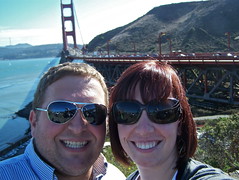In the ancient hallways of bad ideas that litter our history, SOPA/PIPA has to rank up there as one of the worst ideas since people started thinking. This expands government’s control to censor the internet and violates free speech. And since lobbyists from major corporations and industries essentially control Congress, these two bills give those with the deepest pockets the ability to control what we can or cannot see on the internet.
In a nutshell, these bills will enable corporations to effectively shut down websites that they believe are infringing their copyrights and trademarks. All they have to do is file notice (not prove to a court, but simply file notice) that their copyright has been infringed to a service provider, such as the one which registers their web address on the internet, and that entity has 5 days to take action to end service to the site.
There is plenty more information out about these two bills. Some good ones can be found here, here, here, and here. Check them out! Also, my friend Frank has a great commentary on it here.
If you want to see what the world looks like 20 years down the road if these bills get passed… read George Orwell’s 1984.
That may seem like hyperbole, and usually hyperbole is a good bet with me… but not this time.
Please, please, please contact your local representative and tell him/her that this is the exact antithesis to the 1st Amendment. The government’s goal should be to end piracy, not free speech.
That’s my rant for today. Necessary.
Also, did anyone else see that Mitt Romney called his $374,000 from speaking fees “not a lot of money”. Hope you enjoy your 1% of the vote.
Cheers,
Eric




 I’ve forgotten long ago why we keep giving him credence in American public discourse, but Glenn Beck spoke up again. This time, in his ignorance, he said that the earthquake, tsunami and ensuing nuclear crisis were works of God. On his radio show this past Monday, Beck said:
I’ve forgotten long ago why we keep giving him credence in American public discourse, but Glenn Beck spoke up again. This time, in his ignorance, he said that the earthquake, tsunami and ensuing nuclear crisis were works of God. On his radio show this past Monday, Beck said:











